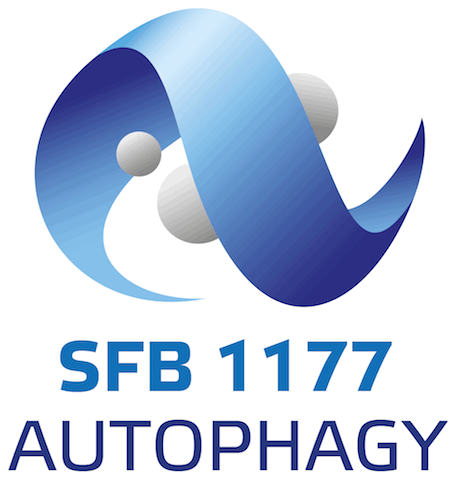E09
Organelle-specific autophagy pathways in regulation of cell death
Autophagy can exert cytotoxic functions which can potentially be utilized for clinical applications including the therapy of apoptosis-refractory tumors such as glioblastoma (GBM). This project aims to reveal the molecular mechanisms by which drug-induced organelle damage engages selective autophagy pathways leading to autophagic cell death and investigate the therapeutic potential of this approach in GBM as a prototypic apoptosis-resistant tumor. To this end, biochemical, cell biological, imaging, and proteomic studies will be combined in preclinical in vitro and in vivo GBM models.

AT-101/gossypol as a trigger of lethal mitophagy. AT-101 causes mitochondrial damage including mitochondrial permeability transition pore (mPTP) opening, loss of membrane potentials, and decreased oxygen consumption. Damaged mitochondria are selectively degraded via mitophagy. In parallel, AT-101 induces the mitophagy receptors BNIP3 and BNIP3L/NIX, as well as the mitophagy-inducer HMOX1, which will further facilitate the extent of mitophagy. This excessive mitophagy finally leads to the demise of the cancer cell(s). This figure was created using Servier Medical Art templates, which are licensed under a Creative Commons Attribution 3.0 Unported License; https://smart.servier.com. From Linder and Kögel, 2019.
Principal Investigators
Dr. sJOERD VAN WIJK
Institut für Experimentelle Tumorforschung in der Pädiatrie
Universitätsklinikum Frankfurt
GU Frankfurt
Komturstrasse 3a
60528 Frankfurt a. M.
Germany
Office: +49 69 678665-74
s.wijk@kinderkrebsstiftung-frankfurt.de
Principal Investigators
Prof. dr. DONAT KÖGEL
Experimentelle Neurochirurgie, Neuroscience Center
Universitätsklinikum Frankfurt
GU Frankfurt
Theodor-Stern Kai 7
60590 Frankfurt a. M.
Germany
Office: +49 (0) 69 6301-6923
koegel@em.uni-frankfurt.de
